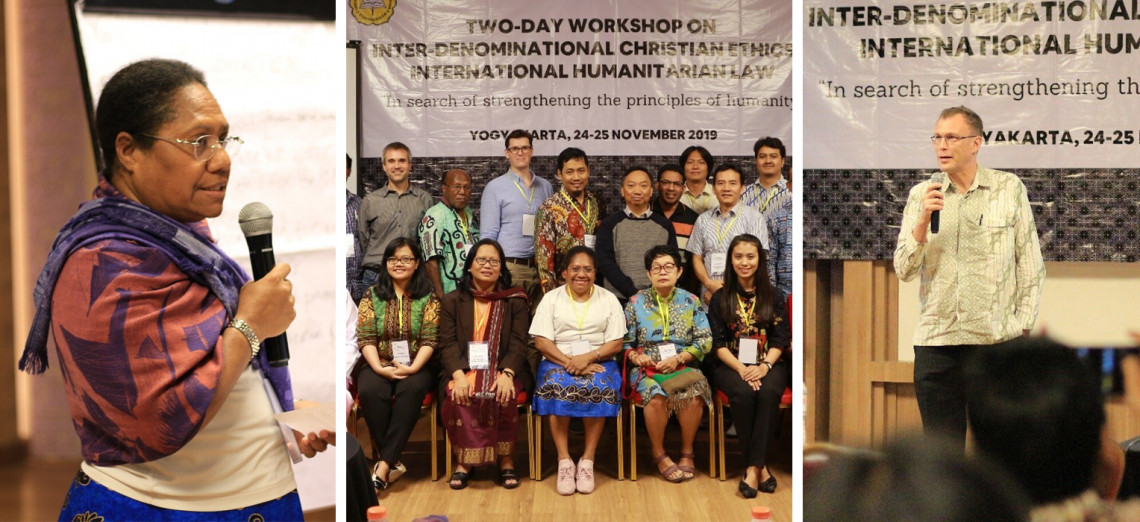The International Committee of the Red Cross (ICRC) and Sanata Dharma University co-hosted a workshop on inter-denominational Christian ethics and international humanitarian law (IHL). Held in Yogyakarta, Indonesia, from 24 to 25 November 2019, the theme of the workshop was entitled “In Search of Strengthening the Principles of Humanity”.
The workshop’s 22 participants consisted of Christian theologians, Christian humanitarian organizations, the Humanitarian Forum Indonesia, and military chaplains of the Indonesian Armed Forces.
Since it marked the first event with the Indonesian Christian circles, it aimed at introducing the ICRC, and basic concepts of IHL, including the “Principles of Humanity” (Nilai Kemanusiaan) initiative and correspondences with Christian ethics.
To open the seminar, Professor Johanes Eka Priyatma, the rector of Sanata Dharma University, and Alexandre Faite, ICRC’s Head of Regional Delegation, signed a Memorandum of Understanding to promote partnership in the areas of humanitarian affairs and exploration of convergences between Christian ethics and IHL.
In his opening remarks, Professor Priyatma, who is also the chairman of the Association of Jesuit Colleges and Universities of Asia Pacific (AJCU-AP), expressed his sincere gratitude to the ICRC for the initiative.
“I really appreciate the ICRC co-organizing this very important event,” he said. “I hope the collaboration among the two institutions would be intensified in the future in order to further spread humanitarian messages and principles.”
Similarly, Mr. Faite was keen to listen and learn more from the participants. “While we might be experts in IHL, we need to understand more about the rich traditions of Indonesian humanitarian values,” he said. “It is time for the ICRC to learn religions and customs-based humanitarian values from the experts.”
The first day of the workshop was opened by Charles Dorman-O’Gowan, the ICRC Regional Coordinator for Global Affairs, who introduced the work and the mandate of the ICRC, including its dialogue and engagement with religious circles.
In the following session, Christian Donny Putranto, ICRC’s Legal Adviser, provided a basic understanding of IHL and the “Principles of Humanity” to the audience.
The second day, chaired by Budi Hernawan, from the ICRC Global Affairs Unit, focused on participants sharing their personal experiences and exploring ideas. The discussion was further enriched by Jayrome Rala, ICRC’s Protection Officer from Davao, Philippines, who provided insights from his experience.
Likewise, Francisco Nggadas, ICRC’s Cooperation Officer, introduced the workshop participants to the “Akhlak Kemanusiaan” module – an abridged version of the ICRC’s Exploring Humanitarian Law, which is being taught in several universities in Indonesia.
The participants’ diversity, expertise and wealth of personal experiences contributed to lively discussions during the workshop. All the participants used the opportunity to build new networks among themselves and further explore collaborations, such as between Christian colleges and humanitarian organizations, in both Indonesia and the wider region.

